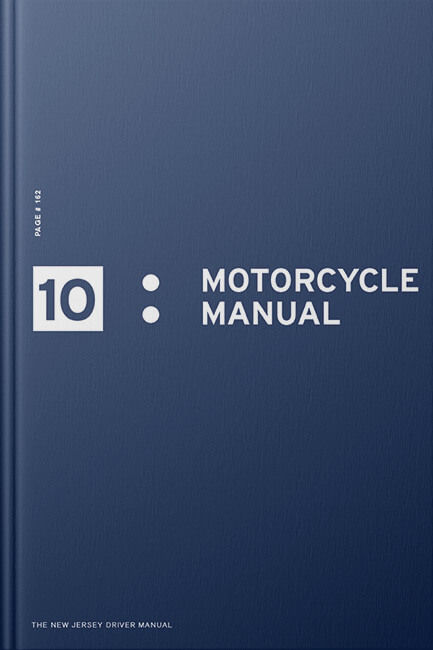New Jersey Motorcycle Manual Driver's Manual
To make studying easier, the New Jersey MVC handbook 2026 edition is available in multiple languages and comes with an audio version. Get interactive support with our AI assistant to clarify any complex terms.
Select your language
New Jersey Motorcycle Manual Online 2026
Freedom, leisure, economical operating costs and convenience are just some of the advantages that motorcyclists enjoy over drivers of four-wheeled vehicles.
In the state of New Jersey, there are a number of requirements that prospective motorcyclists must meet before heading out on the road. These are introduced briefly in this article.
New Jersey Motorcycle License
The state considers a motorcycle to be a motor bike, a bicycle with an attached motor or any type of motor-operated bicycle or tricycle. However, a motorized bicycle is not considered a motorcycle. Any resident of New Jersey wishing to operate a motorcycle needs to have a specific NJ motorcycle driver license or a motorcycle endorsement on their existing basic/commercial license.
New Jersey Driver Manual
The state Motor Vehicle Commission puts out a driver manual that includes a chapter entirely devoted to motorcycle-related safety information and operating rules (available separately below). Some important concepts contained in this chapter include:
- Controlling the Vehicle
- See, Be Seen and Be Heard
- The SIPDE System
- Blind Spots
- Keeping your Distance
- Dangerous Surfaces
- Cautious Night Riding
- Carrying Passengers and Cargo
- Riding with a Group
- Familiarity with the Motorcycle
Test Your Knowledge!
Once you feel confident that you’ve prepared enough, the state Motor Vehicle Commission offers a sample knowledge test for you to assess your knowledge. Some questions that you’ll be expected to know include:
- What is the BAC limit before riders are considered “under the influence?”
- When must you turn your headlights on?
- What must you do when driving in bad weather?
- What should you do when you are driving behind a school bus showing a flashing red light signalling a stop?
If you’re ready, you can take the written knowledge test and vision test. Once you’ve passed these tests, you can get a permit for practice riding on NJ roads.
The Road Test
The road test ensures that applicants have the practical skills to ensure safe, responsible motorcycle operation in real-life conditions. The road test places emphasis on the following motorcycle skills:
- Turning and stopping – Can you control your bike while turning and stopping? You’ll be asked to stay within the path of the turn without putting a foot down or skidding your bike.
- Cone weave (U-turn) – Can you control your bike at a low speed, while weaving through cones and making a U-turn where indicated?
- Braking – Can you safely brake quickly? This will test your stopping distance in relation to the speed of travel.
- Obstacle swerve – Can you swerve the motorcycle quickly, in order to avoid an obstacle in the road?
